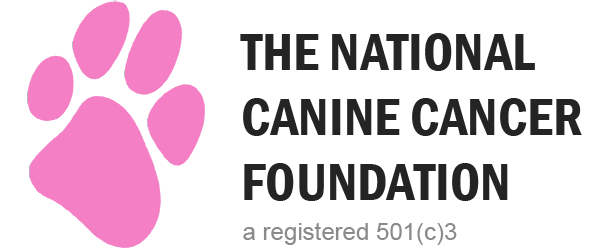Extra Nodal Lymphoma in dogs
It is the rarest among all lymphomas and can affect areas like the breast tissue, cutaneous tissue (skin), hepatic tissue (liver), ocular or orbital tissue (eyes), osteo tissue (bone) and oral tissue (mouth). Extranodal lymphoma in dogs will show degeneration of the organs involved. In the absence of treatment, most of the dogs with lymphoma succumb to the disease in 4-6 weeks.
Diagnostic techniques and clinical staging-
Tissues and cells from peripheral blood, lymph nodes or other sites can be examined by histochemical, and immunocytochemical, flow cytometric and PCR (polymerase chain reaction, this is a method by which scientists create large quantities of a piece of DNA artificially) techniques. In cases where the diagnosis of lymphoma and differentiation between malignant and benign tumors is impossible based on cytologic and histologic criteria, advanced molecular analyses like clonality become useful. After a diagnosis has been established, the extent of disease should be determined. Some type of imaging and assessment of bone marrow involvement may be indicated for staging. The determination of stage depends on factors like whether the staging will determine the course of treatment, what will be the outcome and whether the client needs to know. A bone marrow aspirate or biopsy is indicated for complete staging. Abdominal and thoracic radiographs are helpful. In addition ultrasnography may be important for obtaining ultrasound-guided intra-abdominal samples for diagnosis.
Treatment-
The treatment approach for extranodal lymphoma in dogs is determined by the stage of the disease. Systemic chemotherapy continues to be the treatment of choice for most patients. The standard chemotherapy protocol combines cyclophosphamide, doxorubicin, vincristine and prednisone. Currently the most effective chemotherapeutic agents for lymphoma are doxorubicin, L-asparaginase, polyethylene, glycol, (PEG)-L- asparaginase, vincristine, cyclophosphamide, and prednisone. Other singe-agent drugs that are considered secondary include vinblastine, actinomycin-D, mitoxantrone, chlorambucil, methotrexate, DTIC, 9-aminocamptothecin, ifosfamide, cytosine, arabinoside, gemcitabine, lomustine, and dolastatin-10. Of these, cytosine, arabinoside, ifosfamide, dolastin-10 and gemcitabine appear to be the least effective. With the sole exception of doxirubicin, induction with single agent chemotherapy does not result in durable remission durations compared with standard combination protocols.
With increase in the availability of generic drugs, protocols are becoming readily available to a broad section of veterinary clients. In the instances where lymphoma recurs, reinduction is attempted by reintroducing the reinduction protocol that was successful initially. In most of the cases, the response and length of reinduction are half of those seen in the initial therapy. Some animals certainly enjoy long-term reinductions, especially if the patient had good response in the first therapy and was off it when the recurrence occurred.
If reinduction fails or the dog does not respond, the use of so-called rescue agents or rescue protocols can be attempted. These are drugs that are not found in the standard chemotherapy protocol. They are kept in reserve for later use. The most common rescue protocol include single agent or combination use of actinomycin D, mitoxantrone, doxorubicin (if it was not part of the initial protocol), a doxorubicin/dacarbazine combination, lomustine, L-asparaginase, and the combination mechlorethamine, vincristine, procarbazine and prednisone. Approximately, 40-50% of dogs respond, but their median survival rate is 1.5 to 2.5 months.
It has been observed that in some cases, the cancer patients become resistant to certain drugs. They are subjected to long-term continuous infusions, increasing the frequency of treatments, or enhancing the drugs’ circulation time. But no improvement in survival rate has been found.
Among other alternative treatments, autologous vaccines combined with chemotherapy have been shown to have positive effects in dogs. A tumor vaccine extract using killed lymphoma cells combined with Freund’s adjuvant (freund’s adjuvant is an antigen solution emulsified in mineral oil, used as an immunopotentiator [booster of the immune system]) was injected in dogs after remission induction with combination chemotherapy.
Dogs with multicentric lymphoma mostly undergo chemotherapy. However, surgery can be carried out in a couple of cases where the disease is in its initial phase. In such instances, careful staging is important to rule out multicentric involvement. Sometimes splenectomy is recommended only if the disease is receding in other sites and if the splenic enlargement is caused by lymphoma that is not responsive to chemotherapy. It can also be considered as a treatment for hemolytic anemia (anemia due to destruction rather than underproduction of red blood cells) and persistent thrombocytopenia.
Radiation therapy given to patients either after the completion of chemotherapy or during ongoing sessions have been found to be safe and therefore calls for further investigation.
Prognosis-
Extranodal lymphoma in dogs has not been thoroughly investigated with respect to the prognosis.
Thank you for utilizing our Canine Cancer Library. Please help us keep this ever evolving resource as current and informative as possible with a donation.
Other Types of Lymphoma in dogs:
Alimentary Lymphoma
Mediastinal Lymphoma
Extra Nodal Lymphoma
Multi-Centric Lymphoma
Basic Lymphoma information with staging
Ask the Dr. with Dr. Michael Kent on Lymphoma
Other Articles of Interest:
References
Tumors in Domestic Animals- Donald J. Meuten, DVM, PhD, is a professor of pathology in the Department of Microbiology, Pathology, and Parasitology at the College of Veterinary Medicine, North Carolina State University, Raleigh
Withrow and MacEwen’s Small Animal Clinical Oncology– Stephen J. Withrow, DVM, DACVIM (Oncology), Director; Animal Cancer Center Stuart Chair In Oncology, University Distinguished Professor, Colorado State University Fort Collins, Colorado;
David M. Vail, DVM, DACVIM (Oncology) Professor of Oncology, Director of Clinical Research, School of Veterinary Medicine University of Wisconsin-Madison Madison, Wisconsin

Recent Comments